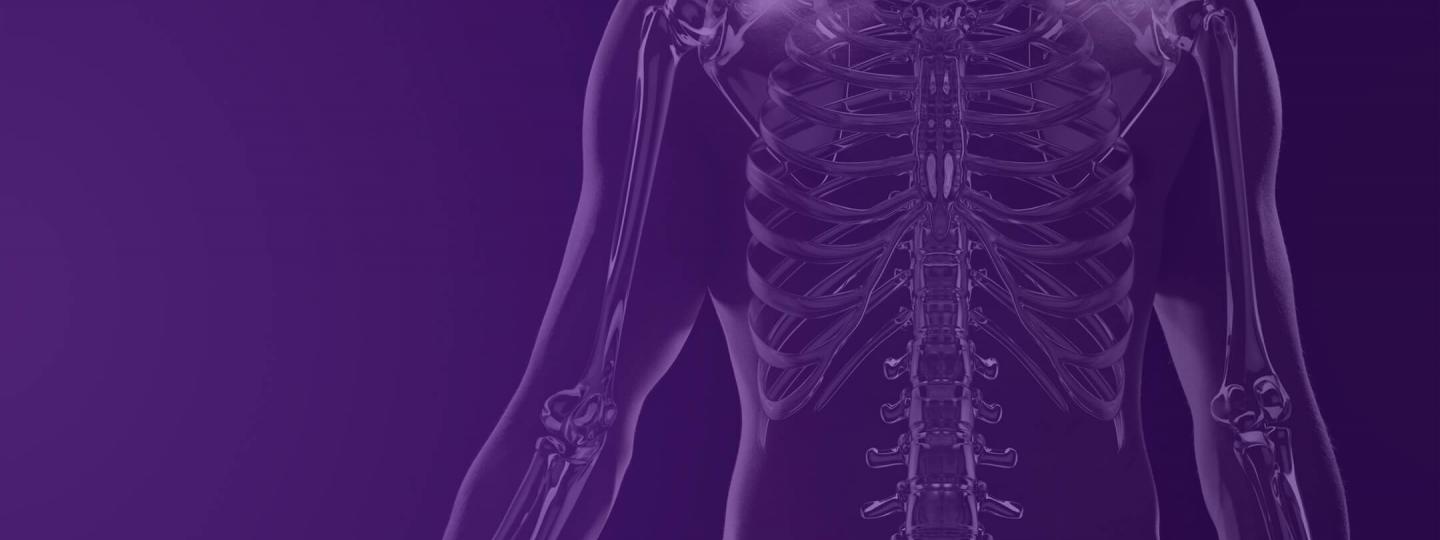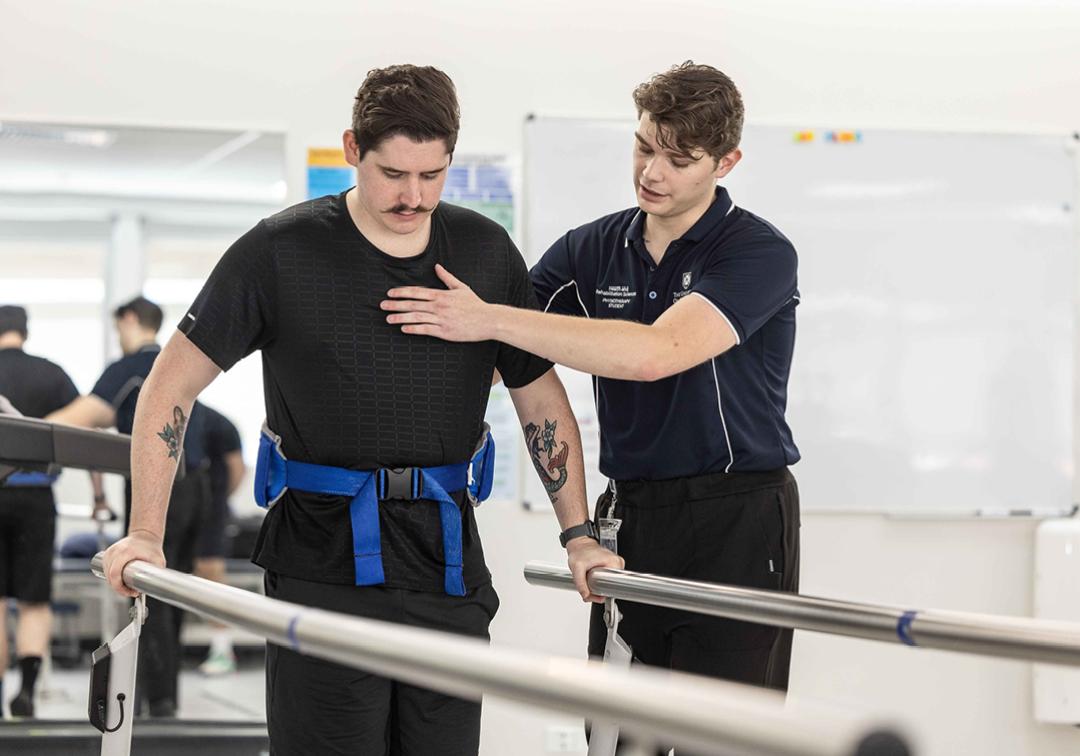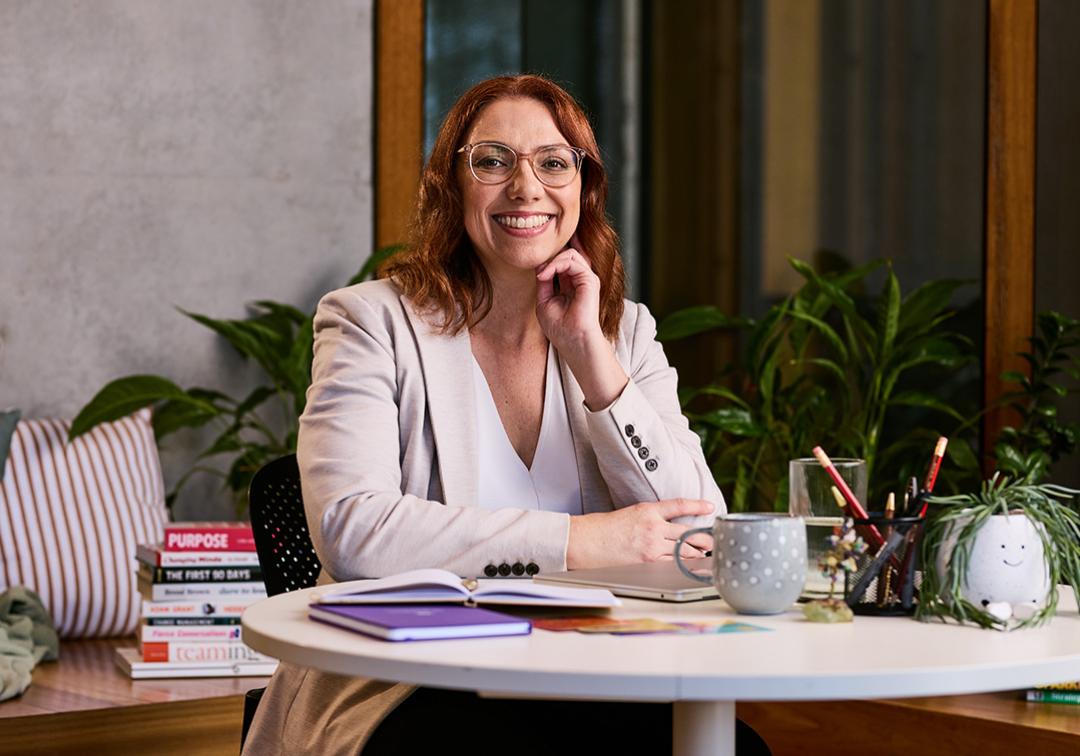
Master of Mental Health
Overview
Develop the advanced knowledge, skills and practical experience you'll need to thrive as a contemporary mental health professional.
The Master of Mental Health is designed for professionals working in health, social services or education who want to build advanced skills in contemporary mental health practice.
You'll be supported to work more effectively with complex mental health presentations using a range of evidence-based therapeutic approaches.
Learn from highly experienced clinicians and educators in weekly small-group online tutorials and immersive, in-person residential workshops held one week per semester. The flexible format is designed to support working professionals, with a balance of structured learning and independent study.
You’ll complete core courses in the study of mental health practice, including ethics, interventions and working with clients. You’ll choose to specialise in one of 2 fields of study – Art Therapy or Psychotherapy.
Art therapy integrates creative expression with therapeutic dialogue to support diverse mental health needs. In this field of study, you’ll receive advanced training and develop your professional identity through experiential learning and 750 hours of supervised placement.
In the Psychotherapy field of study, you'll receive advanced training in the use of psychotherapy techniques, with particular emphasis on psychodynamic, cognitive-behavioural and integrative traditions to help people experiencing diverse mental health concerns. For this field of study, the application of skills and knowledge will happen in your own place of work.
Program highlights
- Specialise in the art therapy or psychotherapy fields.
- Learn from expert practitioners and researchers, many of whom have national or international reputations for scholarship and professional practice.
- Enjoy flexible study designed for working professionals.
Fields of study
Tailor your studies to suit your goals. This program offers these options:
- Art Therapy
- Psychotherapy
How you'll learn
Your learning experiences are designed to best suit the learning outcomes of the courses you choose.
- Lectures
- Tutorials
- Work placements
- Online study
- Workshops
Placements and work experience
What you'll study
At UQ, degrees are called 'programs' and subjects are called 'courses'. Here's a sample of the courses you could study in this program:
- Human Development and Relationships Across the Life Span
- Advanced Therapy Skills: Working with Complex and Non-traditional Clients
- Advanced Therapy Skills: Working with Families and Groups
- Mental Health Research Thesis 1
Career possibilities
Postgraduate study can take you anywhere. Depending on which field you choose, here are some of the careers you could be on your way to:
- Art therapist
- Counsellor
- Mental health services manager
- Community mental health practitioner
- Mental health clinician
- Psychosocial community support worker
- Patient assessor
- Health and well-being consultant
Events
See all events
9 June
Master of Physiotherapy information webinar
Stories
See all stories
UQ people
Turning her curiosity into a healthcare career
4-minute read

Careers
Transform your career with 4 business psychology courses
3-minute read

Uni life
What’s it like to study business psychology as a postgraduate?
5-minute read
Stories
See all stories
UQ people
Turning her curiosity into a healthcare career
4-minute read

Careers
Transform your career with 4 business psychology courses
3-minute read

Uni life
What’s it like to study business psychology as a postgraduate?
5-minute read
Entry requirements
Entry requirements
To be eligible for entry, you'll need:
- a bachelor's degree (or equivalent) in health or social work, plus 1 years full-time equivalent relevant work experience in a mental health setting, or
- a bachelor's degree (or equivalent) in any discipline, plus 2 year full-time equivalent relevant work experience in a mental health setting, or
- a Graduate Certificate or Graduate Diploma in Mental Health from UQ, plus 5 years full-time equivalent relevant work experience in a mental health setting.
You must have a grade point average (GPA) of 4.0 on a 7-point scale in your previous qualification.When you apply for the program, you'll need to provide:
- the work experience assessment form to demonstrate your relevant work experience in mental health.
If you're apply for the Art Therapy field of study, you'll also need to:
- meet the Art Practice entrance standard, and
- attend an art making group experiential.
- a bachelor's degree (or equivalent) in health or social work, plus 1 years full-time equivalent relevant work experience in a mental health setting, or
- a bachelor's degree (or equivalent) in any discipline, plus 2 year full-time equivalent relevant work experience in a mental health setting, or
- a Graduate Certificate or Graduate Diploma in Mental Health from UQ, plus 5 years full-time equivalent relevant work experience in a mental health setting.
You must have a grade point average (GPA) of 4.0 on a 7-point scale in your previous qualification.When you apply for the program, you'll need to provide:
- the work experience assessment form to demonstrate your relevant work experience in mental health.
If you're apply for the Art Therapy field of study, you'll also need to:
- meet the Art Practice entrance standard, and
- attend an art making group experiential.
Related programs
Depending on your previous qualifications and current goals, you might want to consider
one of these related programs:
English language requirements
IELTS overall 7; reading 7; writing 7; speaking 7; listening 7. For other English Language Proficiency Tests and Scores approved for UQ
TOEFL iBT (including Paper Edition) - Overall 100, listening 25, reading 25, writing 27, speaking 23.
PTE Academic - Overall 72, sub bands minimum 72.
CES - Overall 185, All sub bands minimum 185.
Other OET - A minimum grade of B for each sub skill (L,S,R,W).
BE is not accepted.
There are other ways to meet the English language requirements. For some programs, additional conditions apply.
Student visas
International students who are accepted into full-time study in the Master of Mental Health are eligible to apply for an Australian student visa (subclass 500).
There are a number of requirements you must satisfy before a visa is granted, including the Genuine Student (GS) requirement.
Additional application information
Additional application information
Fields of study
Fields of study
Tailor your studies to suit your goals. This program offers these options:
Fields of study
Tailor your studies to suit your goals. This program offers these options:
Fees and Scholarships
Indicative annual fee
Approximate yearly cost of tuition (16 units). Your fees will vary according to your selected courses and study load. Fees are reviewed each year and may increase.
$9,540
2026
Approximate yearly cost of full-time tuition (16 units). Your fees will vary according to your study load. Fees are reviewed each year and may increase.
AUD $45,792
2026
Government assistance
Financial aid
As an international student, you might be eligible for financial aid – either from your home country, or from the Australian Government.
HECS-HELP
Domestic places in the Master of Mental Health are Commonwealth supported, as long as you meet all Commonwealth supported place eligibility requirements.
This means the cost of your education is shared between you and the Australian Government. Instead of tuition fees, Commonwealth supported students pay what are called student contribution amounts.
If you have a Commonwealth supported place, you may also be eligible for HECS-HELP. This is an Australian Government loan scheme to assist eligible students with the cost of their student contribution amounts.
Centrelink support
The Australian Government has approved the Master of Mental Health with the Art Therapy field of study for income support to be made to eligible students.
Scholarships
You may be eligible for more than 100 scholarships, including:
How to apply
Applying online
All international applications should be submitted to UQ. If you prefer, you can use an approved UQ agent near you.
The program code for the Master of Mental Health is 5151.
Applying online
All domestic applications should be submitted to UQ.
The program code for the Master of Mental Health is 5151.
Important dates
The closing date for this program is:
- To commence study in semester 1 - October 31 of the previous year (Art Therapy field of study); November 30 of the previous year (Psychotherapy field of study).
Visa processing times vary. Apply and accept your offer as early as you can.
To learn more about UQ dates, including semester start dates, view the Academic Calendar.
Important dates
The closing date for this program is:
- To commence study in semester 1 - October 31 of the previous year (Art Therapy field of study); January 31 in the year of commencement (Psychotherapy field of study).
To learn more about UQ dates, including semester start dates, view the Academic Calendar.
Aboriginal and Torres Strait Islander applicants
For support with applying – or if you have any questions about university life – get in touch with our Aboriginal and Torres Strait Islander Studies (ATSIS) Unit.
Explore other programs
Express yourself. And your interest.
They say choosing a degree is hard, which is why we've made it easy. Register your interest and we'll send you everything you need to know about applying to UQ.




